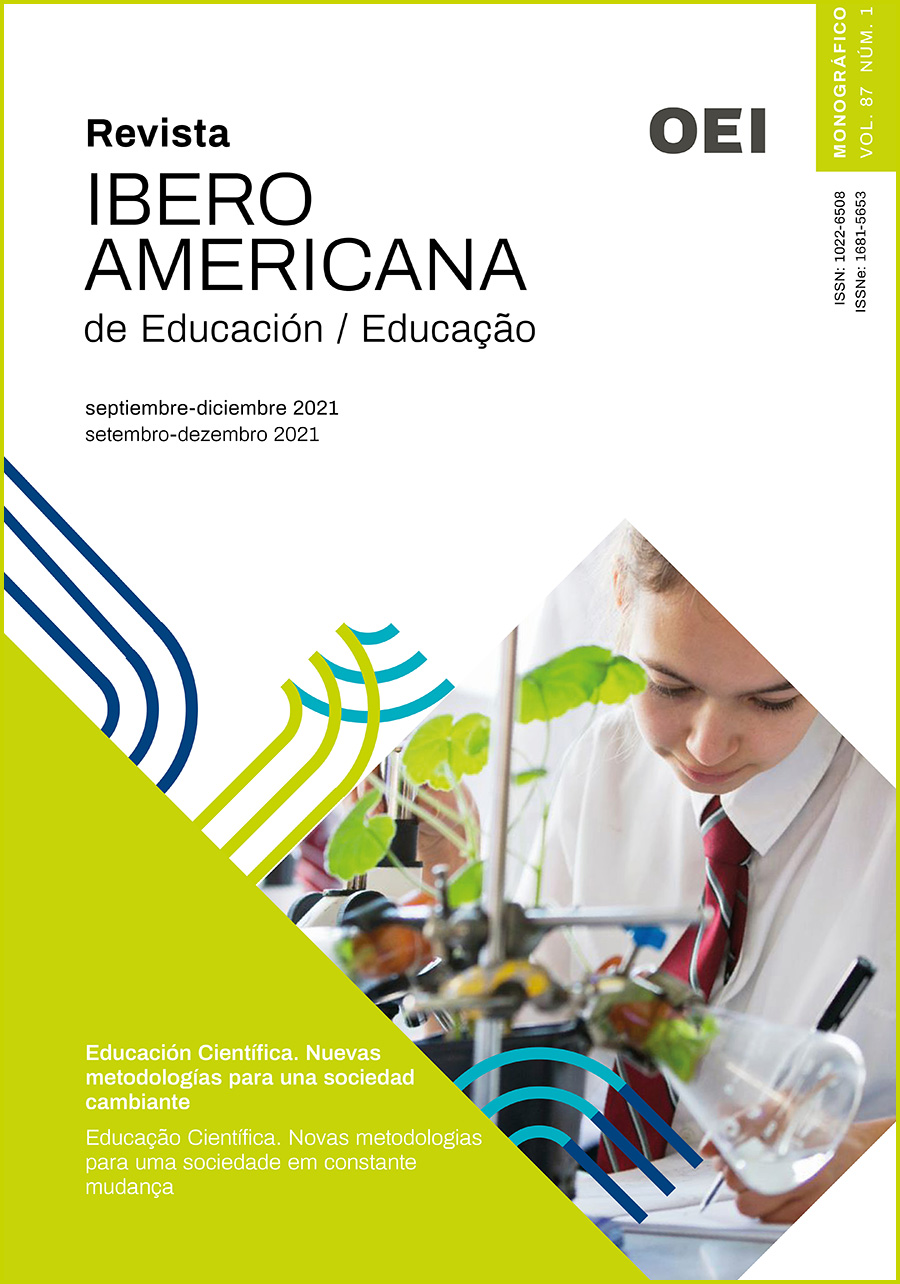Plan Ceibal and the use of digital technology with pedagogical sense in math teaching. The case of the micro:bit board
DOI:
https://doi.org/10.35362/rie8714647Keywords:
Plan CEIBAL; mathematics teaching; middle school math teachers; digital technology; micro:bit boardAbstract
This article is based on research aiming to identify and describe how Uruguayan 7th and 8th grade This article is based on research aiming to identify and describe how Uruguayan 7th and 8th grade mathematics teachers use the micro:bit microcomputers with pedagogical sense. The study used an indagative method based on a qualitative paradigm. The developed techniques were: discussion groups with eight teachers and document analysis of materials presented by fourteen teachers. Among the main discoveries of this research, it stands that the use teachers made of the micro:bit board allowed a better understanding of the mathematical concepts by their students (divisibility, order relations, variables) and it allowed them to approach the situation with a reflective attitude that predisposed them to build conjectures and discuss their viability. On the other hand, programming in the maths class allowed teachers to organize the pedagogical activities in an innovative way that wouldn’t be possible without the board. Teachers agree that, in the interactions of the different participants, and the conjoint construction of mathematical concepts and digital skills between students and them aiming to solve a specific situation, the transformative potential of digital technology became evident. teachers use the Micro:Bit microcomputers with pedagogical sense. The study used an and
Downloads
References
Arias, M. (2000). La triangulación metodológica: sus principios, alcances y limitaciones. Disponible en https://bit.ly/3h5LG7z
Attard, C. (2015). Introducing iPads into primary mathematics classrooms: teachers’ experiences and pedagogies. In: Meletiou Mavrotheris, M, Mavrou K.; Paparistodemou, E. (org.). Integrating touch enabled and mobile devices into contemporary mathematics education (pp. 197-217). Hershey: IGI Global.
Bansilal, S. (2015). Exploring student teachers’ perceptions of the influence of technology in learning and teaching mathematics. South African Journal of Education, Pretoria, 35(4), 1-8. https://doi.org/10.15700/saje.v35n4a1217
Barbour, R. (2013). Los grupos de discusión en Investigación Cualitativa. Madrid: Morata.
Coll, C. (2004). Los usos de las TIC en los procesos formales y escolares de enseñanza y aprendizaje. Revista Tecnología y Prácticas Educativas, 25, 17-19.
Coll, C., J. Onrubia, y T. Mauri, T. (2007). Tecnología y prácticas pedagógicas: las TIC como instrumentos de mediación de la actividad conjunta de profesores y estudiantes, Anuario de Psicología, 38(3), 377-400.
Dussel, I. (2011). Aprender y enseñar en la cultura digital. VII Foro Latinoamericano de Educación TIC y educación: experiencias y aplicaciones en el aula. Disponible en https://bit.ly/2WQoTpz
García-González, L. y Solano-Suarez, A. (2020). Enseñanza de la Matemática mediada por la tecnología. EduSol, 20(70), 84-99. Disponible en https://bit.ly/38FUInc
Glaser, B. y Strauss, A. (1967). The discovery of grounded theory. Chicago: Aldine Press.
Goehle, G. y Wagman, J. (2016). The impact of gamification in web based homework. Problems, Resources, and Issues in Mathematics Undergraduate Studies, 26(6), 557- 569. https://doi.org/10.1080/10511970.2015.1122690
Ibáñez, J. (1992). Más allá de la sociología. El grupo de discusión. Teoría y crítica. Siglo XXI, Madrid.
Korma, R. (2005). Monitoring and Evaluation of ICT for Education Impact: A Review. In Wagner, D., Day, B., James, T., Kozma, R., Miller, J., and Unwin, T. (Eds.). Monitoring and evaluation of ICT in education projects: A handbook for developing countries, (pp. 11-20). Washington, D.C.: The World Bank.
Miles, M. y Huberman A. (1984). Qualitative data analysis. A source book of new methods, Beverly Hills, Sage
Pecharromán, C. (2014). El aprendizaje y la comprensión de los objetos matemáticos desde una perspectiva ontológica. Educación matemática, 26(2), 111-133. Recuperado de https://bit.ly/2WX94wD
Pólya G. (1989). Cómo plantear y Resolver problemas. México. Editorial Trillas
Puentedura, R. (2006). Transformation, technology, and education [Audio en podcast]. Recuperado de http://hippasus.com/resources/tte/
Revelo, J. (2017). Modelo de integración de la competencia digital docente en la enseñanza de la matemática en la universidad tecnológica equinoccial. (Doctoral dissertation). Universidad de Extremadura. Recuperado de https://bit.ly/3h3ncfi
Rivera-Vargas P. y Cobo-Romani C. (2020). Digital learning: distraction or default for the future. Digital Education Review, 37. http://greav.ub.edu/der/
Sosa, M. (2015). El proceso de integración de las tecnologías de la información y comunicación en centros de Educación Primaria: Estudio de caso múltiple (Tesis Doctorado). Departamento de Ciencias de la Educación. Universidad de Extremadura, Cáceres. Recuperado de https://bit.ly/3tj3qB5
Tedesco, J. (2012) “Educación y Justicia social en América Latina “. Buenos Aires.
Vaillant, D., Rodríguez-Zidán, E. y Bentancor-Biagas, G. (2020). Uso de plataformas y herramientas digitales para la enseñanza de la Matemática. Ensaio: Avaliação e Políticas Públicas em Educação, 28(108), 718-740. https://doi.org/10.1590/S0104-40362020002802241
Vaillant, D. (2015). Prólogo. En “Educación y tecnología en el Uruguay: Una mirada desde la investigación” Recuperado de https://bit.ly/3yOisQL
Valiente, O. (2010). 1-1 in Education: Current Practice, International Comparative Research Evidence and Policy Implications. OECD Education Working Papers, 44.
Yuni, J. y Urbano, C. (2006). Técnicas para investigar 2. Recursos metodológicos para la preparación de proyectos de investigación: Córdoba: Brujas.
How to Cite
Published
Issue
Section
License
Any authors who publish with this journal accept the following terms:















